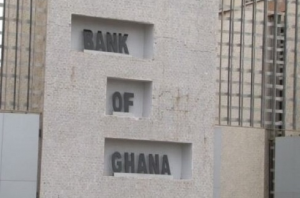Banks and other financial institutions are always faced with the decision to grant ‘the loan’ or not to grant. That decision basically hinges on the bank’s perception of the borrower’s WILLINGNESS and CAPACITY to repay. To determine these attributes, the organisation would look at the customer’s banking records with them and possibly with other institutions. The bank obviously has their customer’s records with them and so access is easy. Difficulties set in when the banks need customers’ records, past and present, with other banks. This is where the Credit Referencing activity comes in. This activity is executed by a bureau which is supposed to house all customers’ data. This means every banking customer should be aware that they are building a history which will determine their future. The bureau in Ghana is regulated by the Credit Reporting Act, 2007 (ACT 726). It was enacted to provide a framework for credit reporting and other related matters. The Act empowers the Bank of Ghana to have overall supervisory and regulatory authority in all matters relating to credit reporting. The Bank of Ghana therefore monitors the operations of credit bureaus and financial institutions to ensure compliance with prescribed standards and statutory requirements. This activity includes credit bureau licensing, data provider operations, data protection, dispute resolution, submission of reports, application of sanctions and other incidental matters. Three (3) organisations, XDS Data, Dun & Bradstreet and Hudson Price, have been licensed as credit referencing bureaus (CRBs) to conduct the referencing activities. The success of this facility however depends on how banks and specialised deposit-taking institutions regularly submit data and how the industry and individuals request their services.
 A recent report by Bank of Ghana reveals that only 53% of banks representing 17 banks consistently submitted data to the credit referencing bureaus, 74% of NBFI’s and 60% of Rural banks respectively also submitted data to the bureaus. This leaves quite a big room for effective delivery and satisfactory service. Another big hole in the system is the fact that microfinance companies are currently not subscribed to the service and therefore do not submit data. A Financial Consultant with M-DoZ Consulting, Mr. Yaw Korankye Antwi, believes that for the credit referencing system to deliver to its optimum, the entire financial system should be hooked to the system. According to him, the Bank of Ghana needs to start instituting punitive measures to organisations who have been breaching the said directive of not submitting data. The Central Bank also needs to embark on a lot of public education and industry engagement. ‘On the backdrop that businesses and individuals could subscribe to the service before lending or supplying goods on credit to anyone, the public should know that such a system exists’, he says.
A recent report by Bank of Ghana reveals that only 53% of banks representing 17 banks consistently submitted data to the credit referencing bureaus, 74% of NBFI’s and 60% of Rural banks respectively also submitted data to the bureaus. This leaves quite a big room for effective delivery and satisfactory service. Another big hole in the system is the fact that microfinance companies are currently not subscribed to the service and therefore do not submit data. A Financial Consultant with M-DoZ Consulting, Mr. Yaw Korankye Antwi, believes that for the credit referencing system to deliver to its optimum, the entire financial system should be hooked to the system. According to him, the Bank of Ghana needs to start instituting punitive measures to organisations who have been breaching the said directive of not submitting data. The Central Bank also needs to embark on a lot of public education and industry engagement. ‘On the backdrop that businesses and individuals could subscribe to the service before lending or supplying goods on credit to anyone, the public should know that such a system exists’, he says.
It is however of interest to know that the usage of the facility is growing. According to the recent Bank of Ghana report general usage of the facility grew 34% from 1.6 million enquiries in 2016 to 2.2 million in 2017. NBFI’s requests constituted about 84% of the 2.2 million which the Bank attributes possibly to the increased activities of pay-roll lending.
It is however of interest to know that the usage of the facility is growing. According to the recent Bank of Ghana report general usage of the facility grew 34% from 1.6 million enquiries in 2016 to 2.2 million in 2017. NBFI’s requests constituted about 84% of the 2.2 million. This the Bank attributes possibly to the increased activities of pay-roll lending.
Again of the 2.2 million enquiries in 2017, 2.1 million (94.6%) received a response while 120,962 (5.4%) were not found on the data. This represents quite a good ‘hit’ status. Credit history requests on individuals was the higher with 2.2 million, while 66,669 were on businesses.
The facility stands to benefit individuals and businesses if they could subscribe to the services of the CRB. It would effectively help to reduce defaults by both individuals and businesses. There is however some way to go get a fully functional credit referencing system.
Related:Poor credit practices, is the cause of high NPLs
![]() www.ghanatalksbusiness.com
www.ghanatalksbusiness.com


